Labs
Applied Physics and Electromagnetics Laboratory
Eng. Anas Jallad
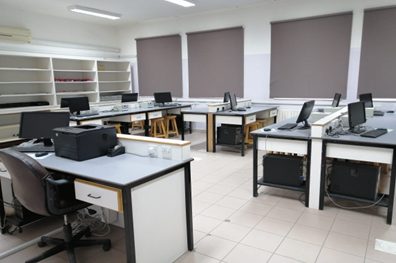
In this lab students carry out practical experiments in applied physics and electromagnetics in order to investigate the central concepts in electrical engineering such as Coulomb's law, electric field, Ohm’s law, Faraday’s Laws, Gauss's law, etc.
Electrical Circuits and Electronics Laboratory
Eng. Ala'a Rawashdeh
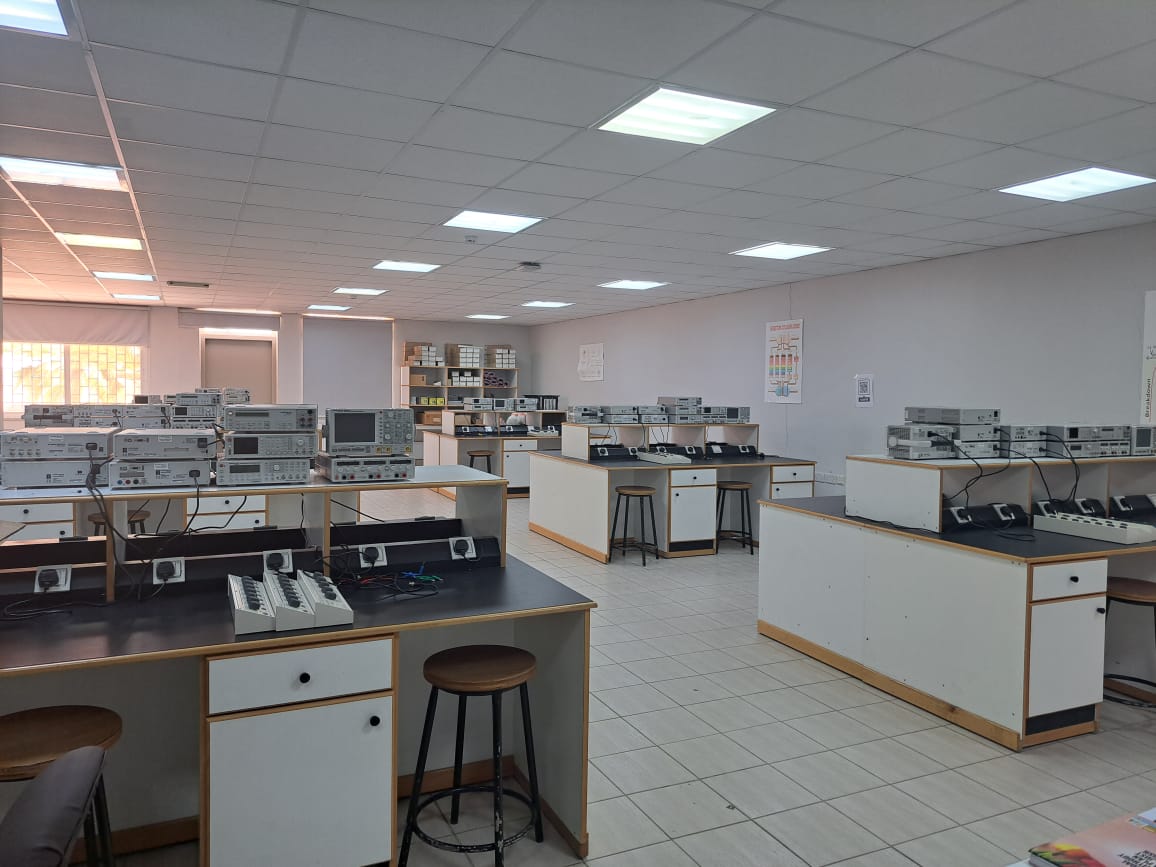
In the electrical circuits and electronics laboratory, students carry out experiments to verify basic electrical circuits theories, such as Kirchoff’s current and voltage laws. In addition to building basic circuits involving resistors, capacitors and inductors. At the end of this lab, students design and build passive filters. In the electronics lab, students investigate diode and transistor circuits, amplifiers, op-amps, wave generators, and digital electronics.
Power Electronics and Drive Systems Laboratory
Eng. Ahmad Al-ghababsheh
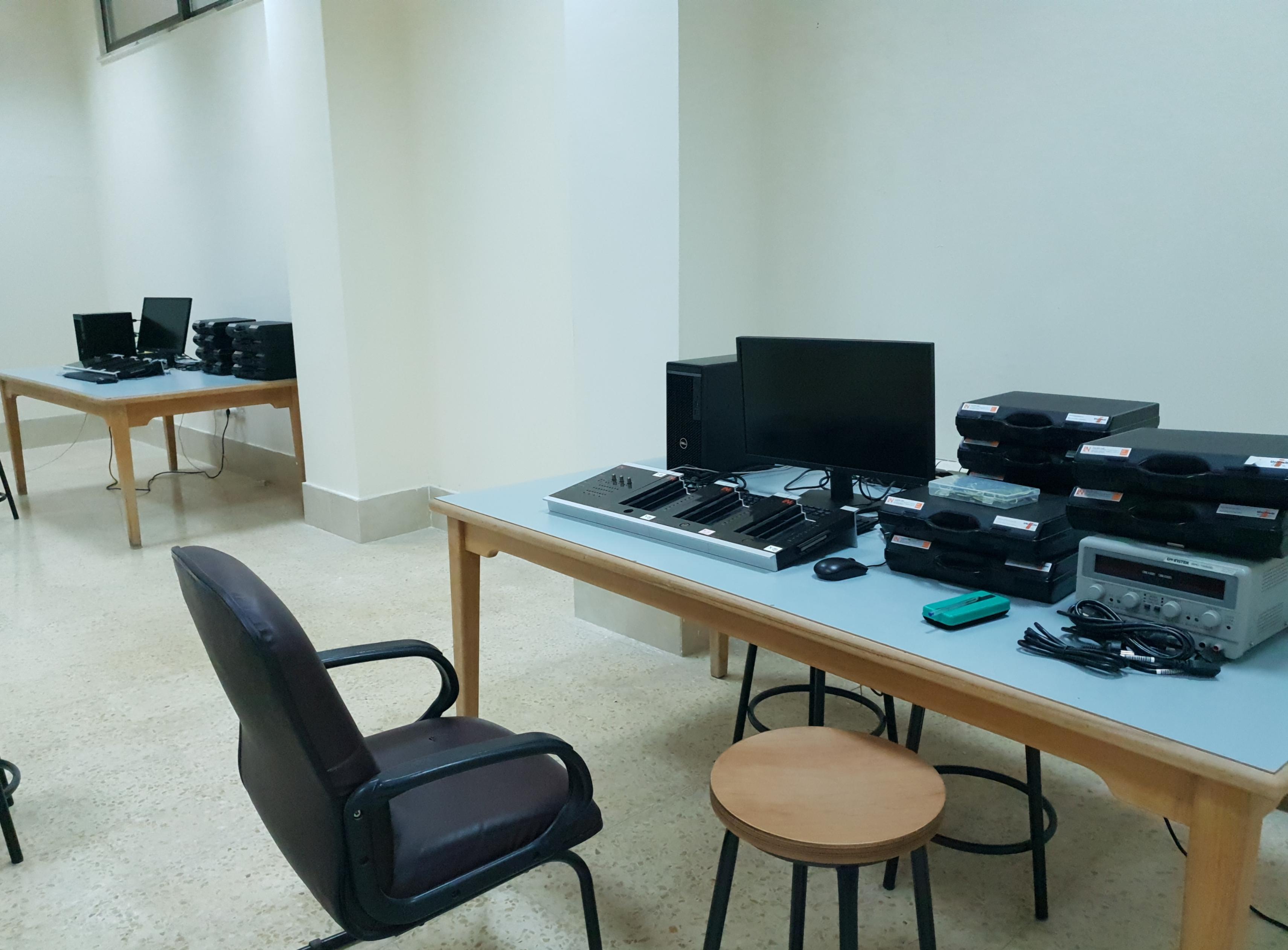
This laboratory introduces the student to measurement and simulation of important operating characteristics of power electronic circuits and power semiconductor devices. Emphasis is on devices, circuits, gating methods and power quality.
Electrical Machines Laboratory
Eng. Ahmad Al-ghababsheh
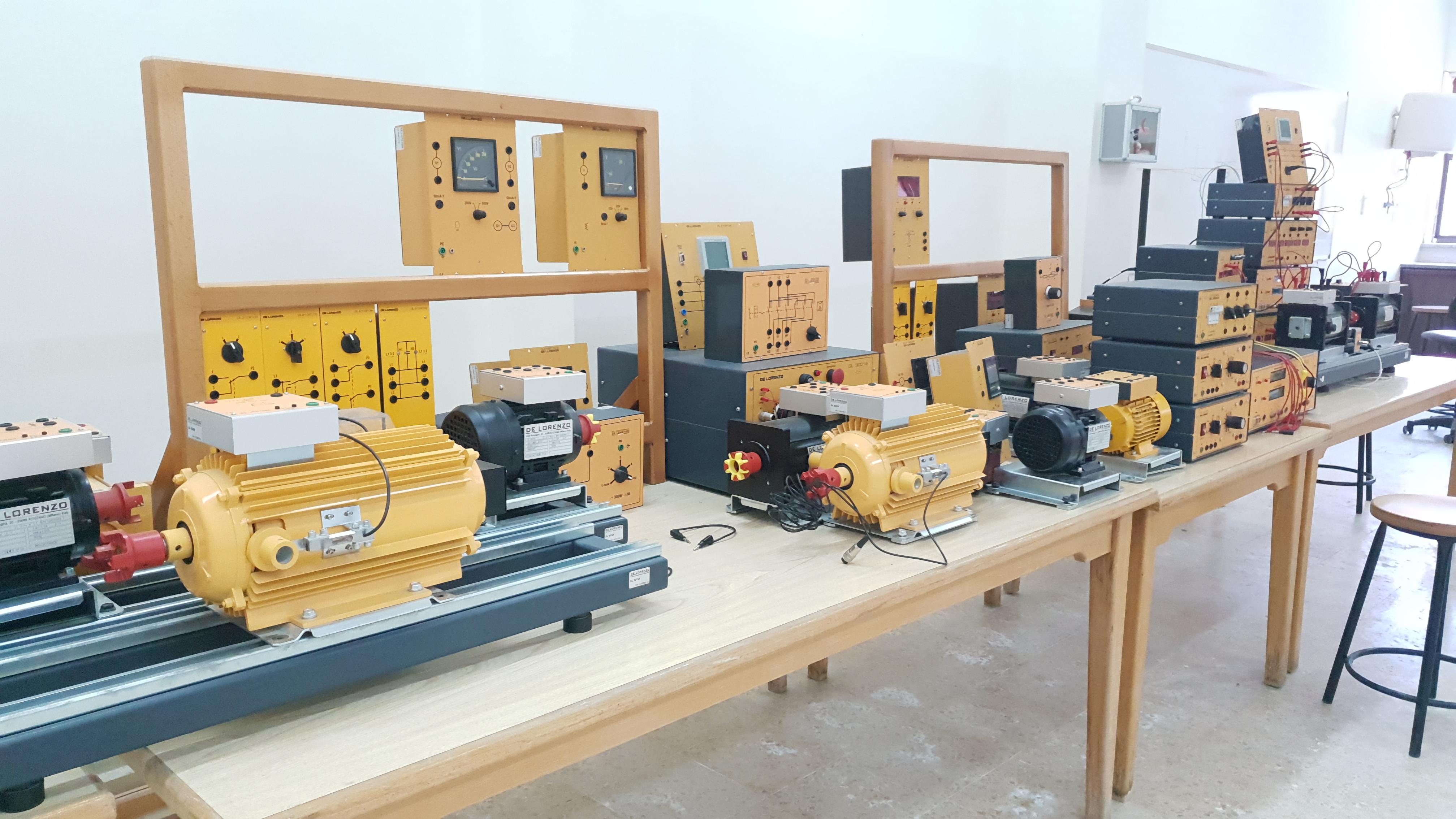
This laboratory introduces the student to the theory of AC synchronous generators and motors, which is then demonstrated with practical experiments. Some theoretical aspects are also discussed, such as vector analysis of the synchronous machine and its effect on the grid system as well as the concept of infinite buses is covered in depth. Attention is given to the different types of construction methods of Synchronous machines and as well as the effect of these Construction methods on Harmonic distortion. Power factor correction using synchronous machines in “Real World “situations are covered in depth.
Power Systems Analysis Laboratory
Eng. Ahmad Al-ghababsheh
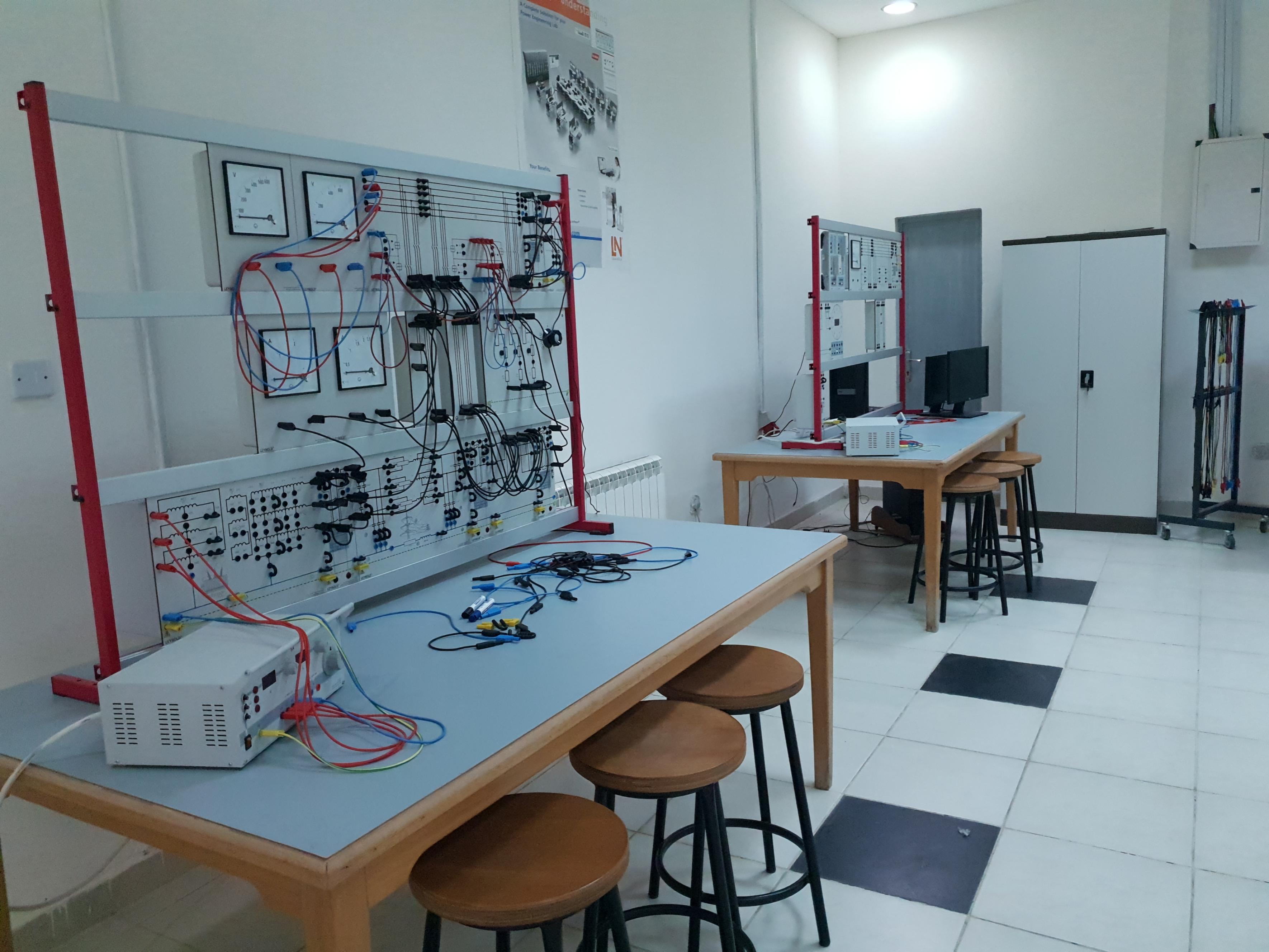
This laboratory introduces the student to the typical components of power systems (e.g. transformers, rotating machines) through performing experiments and studies, and includes review of power system modeling, network matrices, bus admittance and impedance.
Control Systems Laboratory
Eng. Majd Hijaz
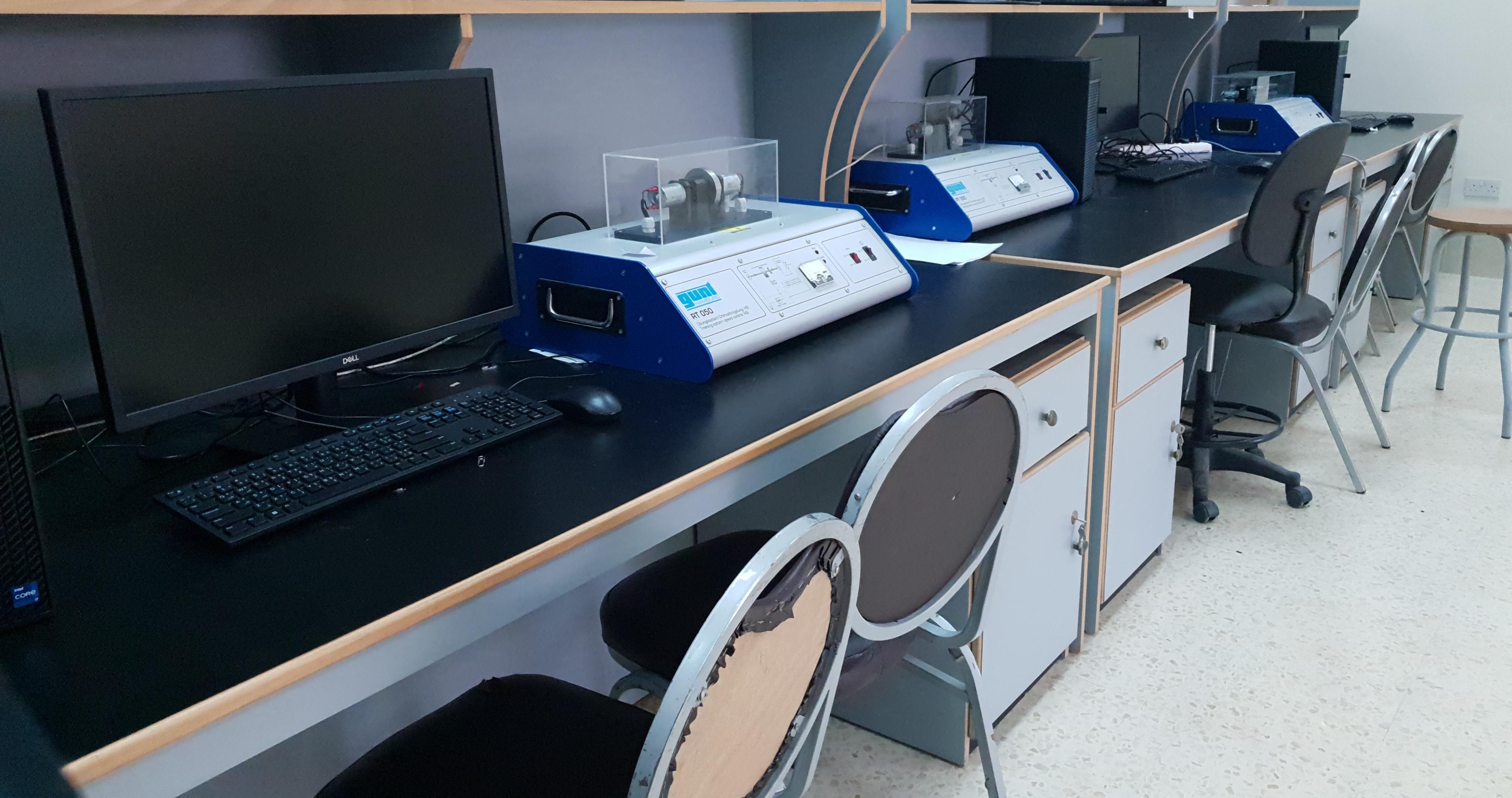
This laboratory introduces the student to the concepts of feedback (both positive and negative). Transient and steady-state analysis using Laplace transforms is also investigated. Bode plots and stability criteria are included as well. Lab work includes the use of mathematical analysis and simulation. Recently, more experiments that involve Arduino, automatic code generation of control systems, physical modeling using MATLAB/Simscape, model-based design, and hardware implementation of control systems have been introduced.
Control Systems Laboratory
Eng. Majd Hijaz
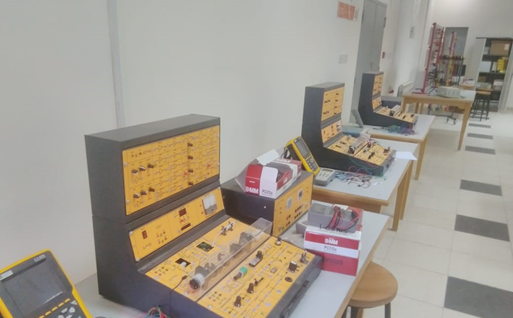
This laboratory is based on lab projects designed to provide students with an opportunity to consolidate their theoretical knowledge of basic measurement techniques, instruments, and methods. It includes projects in both analogue and digital instruments, measurements errors and uncertainty, instrument transformers, bridges, amplifiers, oscilloscopes, data acquisition, sensors, instrument controls and measurement systems.